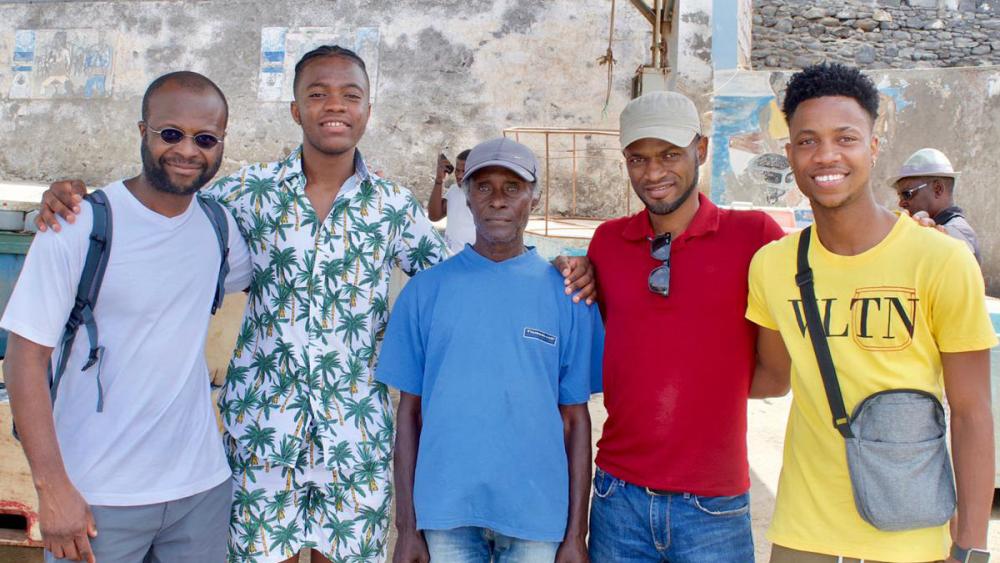UNIVERSITY PARK, Pa. — Climate change impacts nearly every part of the agricultural industry. It manifests through increased floods, droughts, and severe storms, affecting communities in developing countries first. Agricultural development can help these communities adapt to these changes through creative, multifaceted solutions. Mare Sarr, associate professor at Penn State School of International Affairs and co-director of the Penn State Alliance for Education, Science, Engineering & Design with Africa (AESEDA), joined a team of U.S. and Cape Verde researchers and students that formulated a way to assist local fishermen in impoverished communities affected by climate change in Praia, Cape Verde.
This project (ELEVAR 2030) involves AESEDA and University of Cape Verde (UniCV), and is funded under the U.S.-Cape Verde University Partnerships Initiative (USCVUP) by the U.S. Department of State and U.S. embassy in Cape Verde. Together, students and faculty from Penn State and UniCV collaborated to build weather station devices to enhance the safety of fishermen.
Sarr said, “Fishermen have little information about the weather and how the sea conditions might change while at sea. They simply use the knowledge they have acquired over the years and their instinct to predict what might happen before they decide to go to the sea. This is extremely risky and clearly far from ideal.”
Located in West Africa, Cape Verde is an arid archipelago of 10 volcanic islands, nine of which are inhabited. The Atlantic Ocean provides a vital food source and job opportunities. Fishermen brave the water every day to support their families and contribute to the country’s food security by providing much needed sources of protein. But without accurate and reliable weather data, they cannot make informed and safe decisions. “They are vulnerable to the vagaries of the weather,” said Sarr.
The fishermen in these communities use their senses to assess the sky, temperature, wind, and humidity to predict if they can fish that day. While this may have worked in the past, climate change complicates this system. With increased frequency of severe weather systems like hurricanes due to climate change, fishermen could be caught in dangerous storms. The team designed weather stations to help the fishermen get potentially life-saving information and decrease risky situations on the water.
“The idea here is to provide them with real time information about the weather. We have partnered with the University of Cape Verde to engage with communities that are in the capital and to also engage university students to think about how they can help their own communities, and at the same time develop skills that will be useful for them going forward in their careers,” Sarr said.
For these weather stations to benefit the local communities, they had to incorporate three elements to make the project sustainable: local knowledge, local design, and low costs. UniCV students Fred Centino and Edson Moreno took the responsibility for designing and building the stations, under the mentorship of Gregory Jenkins, professor of meteorology and atmospheric science, geography, African studies, and director of AESEDA, and Professor Mateus Andrade (UniCV). They used 3D printers to build every element of the sensors on the weather stations, which included a rain gauge, a tide gauge, a thermometer, and a tool to measure wind speed and direction.
“All the instruments provide information that is essential for fishermen to be able to make the right decision about their safety,” said Sarr.
Source link : https://www.psu.edu/news/penn-state-school-international-affairs/story/international-research-team-uses-interdisciplinary
Author :
Publish date : 2022-07-25 07:00:00
Copyright for syndicated content belongs to the linked Source.
